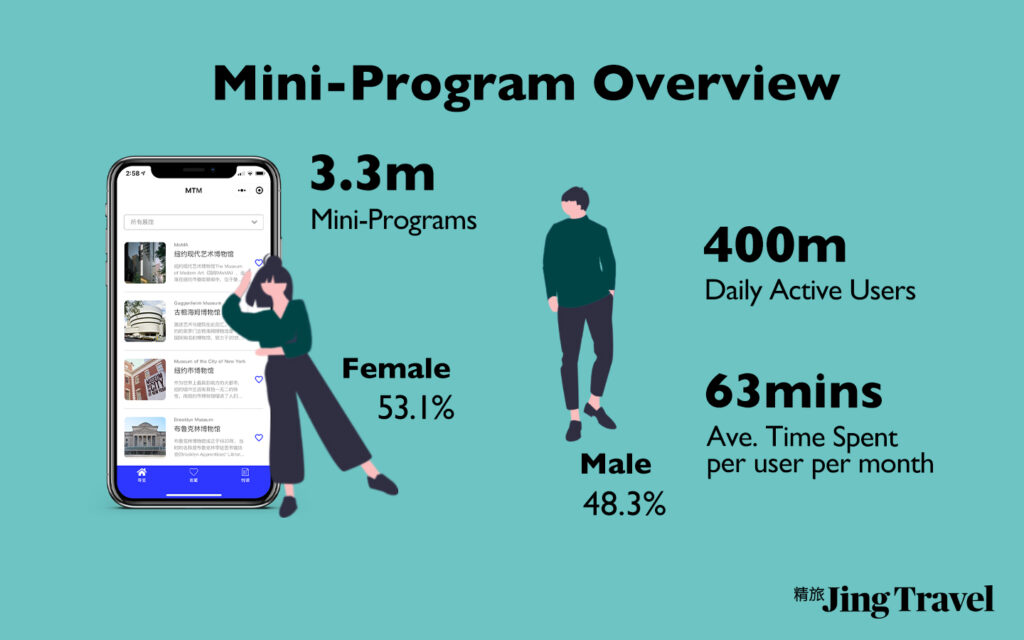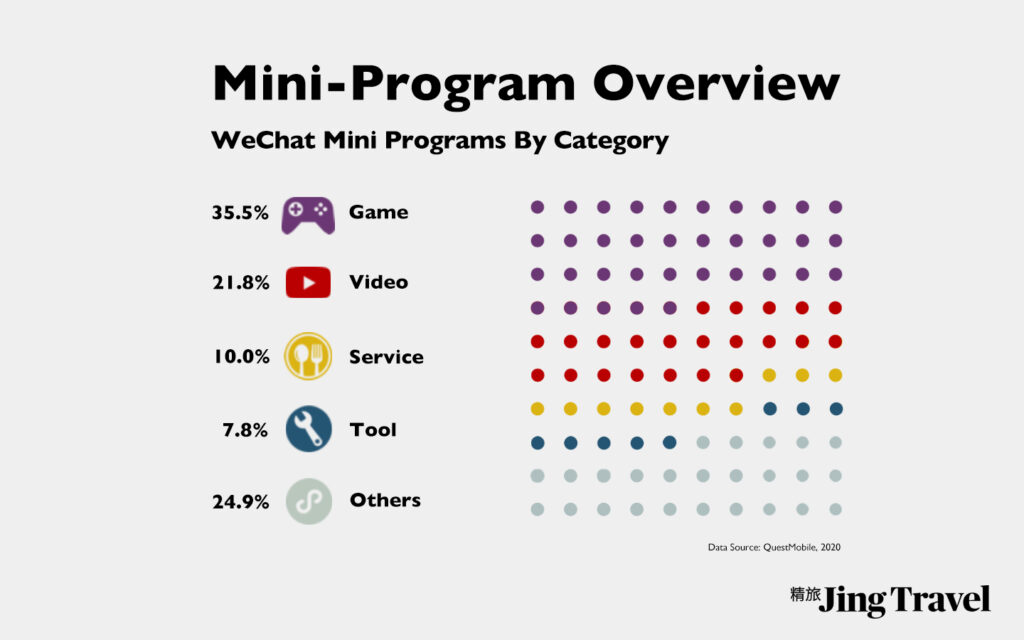Super-apps. Lightweight sub-applications. Digital Swiss Army knives. When it comes to explaining WeChat Mini Programs, descriptions differ drastically.
Sometimes it’s best to first focus on functionality. In their most basic form, Mini Programs allow destinations to provide Chinese visitors with the essential information they need. More complex creations, however, can incorporate ticketing, maps, audio-guides, games, and more. This ability to fully customize has seen their popularity grow with destination marketing organizations and cultural destinations alike.
The City of Melbourne’s Mini Program, for instance, encourages visitors to ‘check in’ to 10 city landmarks (it integrates a map and background info), offering prizes to those who do — visitors to San Francisco’s Asian Art Museum can choose a regional tour and listen to curator insights while they browse. All this functionality, it bears stressing, is presented on a platform that the overwhelming majority of Chinese use daily.
WeChat Mini Programs — What Are They?
Mini Programs are apps embedded within WeChat’s ecosystem. They don’t require downloading or installation — browsers simply open, use, and share. Launched 2017, they offer WeChat users the functions of an app such as gaming, order placing, and customer service without the hassle of a download, making the user experience swift and seamless.

Many Chinese brands run Mini Programs in addition to stand-alone apps. Image: Jessie Han
There are currently more than 3 million Mini Programs, double the number in 2018, with Tencent reporting 300 million Daily Active Users, a year-on-year increase of 45 percent. This growth reflects a consumer eagerness to complete simple functions, such as payments, bookings, and wayfinding, within WeChat when available.
For cultural destinations, if WeChat Official Accounts function primarily as an informational tool — engaging audiences with timely articles and answers to FAQs — Mini Programs, facilitate specific visitor needs. This includes easing navigation with an interactive map, bridging the language barrier with a self-guided tour embedded with audio-visual resources, and executing and storing ticket purchases.

Games found early success on WeChat’s Mini Programs, Tencent’s Jump Jump, for instance, had more than 100 million players in late 2017. Image: Jessie Han
Launching a Mini Program doesn’t require having a WeChat Official Account. By uploading useful functions and evergreen content, global destinations can significantly improve the experience of Chinese visitors without committing to long-term expenditure — a smart and cost-efficient first step into the China market.
This article is part of a series looking at Mini Programs in the context of cultural institutions, read Part Two on Mini Program functions here.
Words by Richard Whiddington. Edited by Peter Huang.



